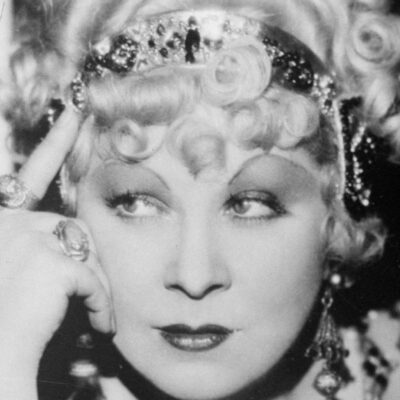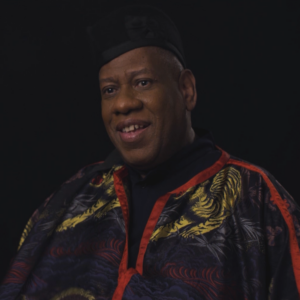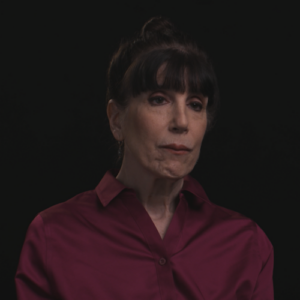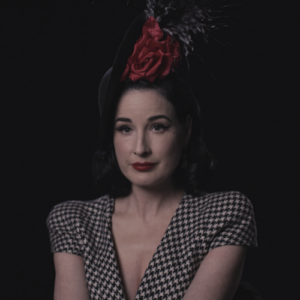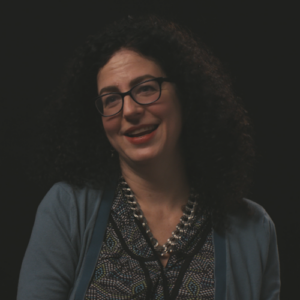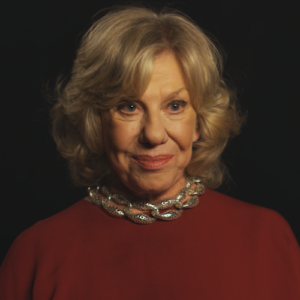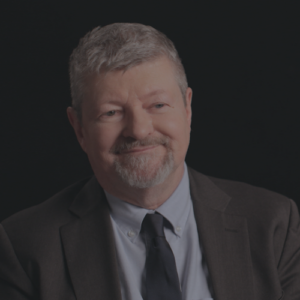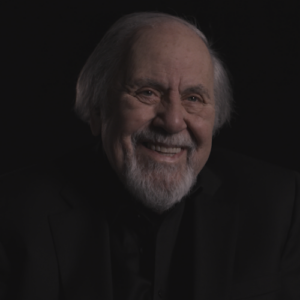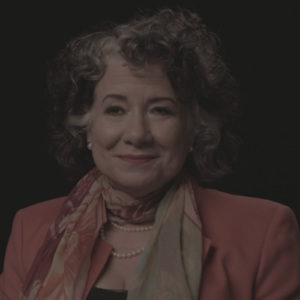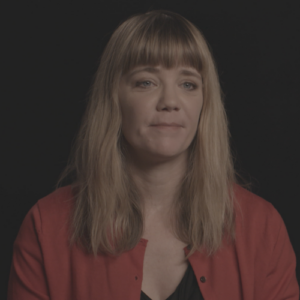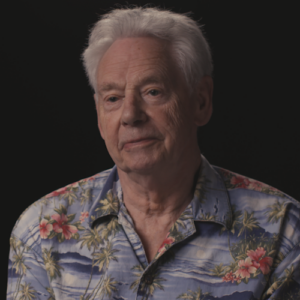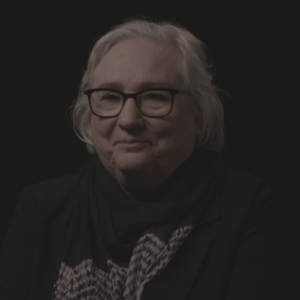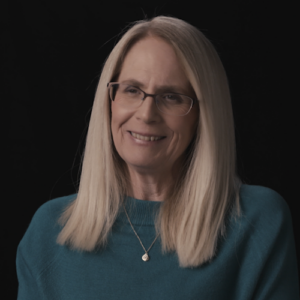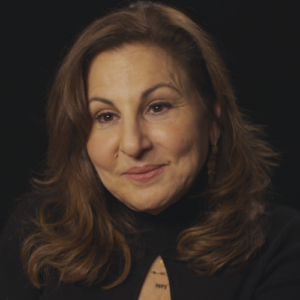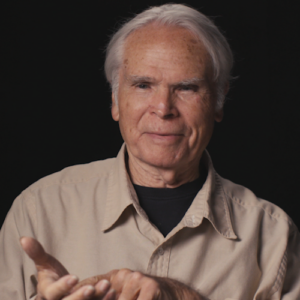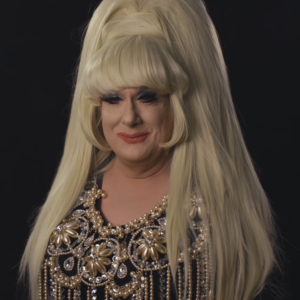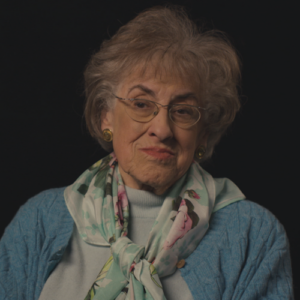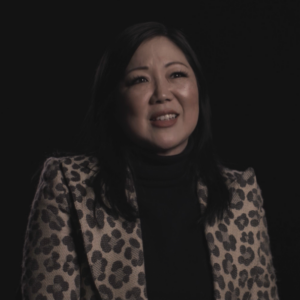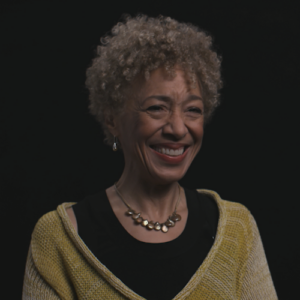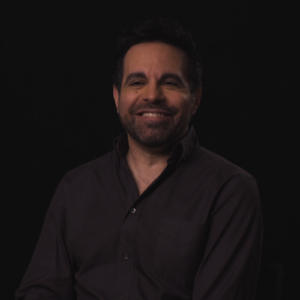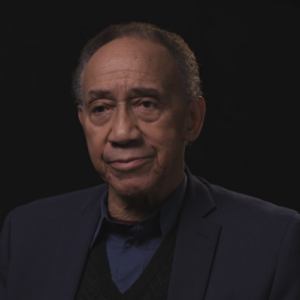Anne Beatts: The funny thing about Mae West is that I actually heard of Mae West first as a pastry and French Canada, because there’s a kind of round chocolate covered, vanilla filled vanilla cake with vanilla filling pastry called a mae West, which used to be in French Canada. Lord knows if it still exists. And it was sort of the cliché French Canadian treat. And so like the joking line in French kind of would be like Mae West and Pepsi pour panties will. And that’s how I heard Mae West. That was the first when I was going to college here. That was the first. My first awareness of Mae West was this pastry that was named after her. And I think you would really have to have two of them to get the. The symbolism. Correct. So then Mae West came to my consciousness through W.C. Fields, because it was sort of the burgeoning era of dorm room posters. And people had posters of W.C. Fields. And then I learned about W.C. Fields, and I saw my little chickadee. And I think that’s when I first actually saw Mae West. And then I was like, Whoa, who is this person? And you know that she’s so compelling and she’s also so witty. And it was such an interesting persona, particularly in probably like 1966. That I was very drawn to her.
Interviewer: How would you describe that persona to someone who didn’t know her?
Anne Beatts: Well, she’s like a battleship, you know, prow forward. But I think, you know, she was kind of the first or one of the first of like what you might call the kind of dynamite blonds. And I think you’d have to put Sophie Tucker in the same category. And then, you know, I think she’s she has a big legacy of people today that are sort of in the same genre. I mean, I think in the fifties, Marilyn, Jayne Mansfield, Diana Dawes, and then, you know, today you would say for sure Lady Gaga. And you know who else? Well, Madonna, to a degree, I would think Madonna, particularly Madonna in her bullet bra period or rocket bra, whatever you call that. And there there seem to be a lot of people both in in movies and in music and in comedy who seem like, you know, the the errors or heiresses of Mae West.
Interviewer: What aspects of her do you see in, like a Lady Gaga or Madonna?
Anne Beatts: Well, you know, I think it’s like pushing the envelope until you tear it up, because she she was you know, she was she was obviously an anomaly in her period. And she she she broke rules that hadn’t been invented yet, you know. And of course, she was arrested and which she just turned into a publicity stunt, basically. And, you know, Madonna was censored. Right. So the same kind of thing. And she you know, she took sex and and made she made her persona about sex. But it was really like sex as a joke. And I think I think that that’s particularly terrifying to me. Because, you know, I’ve always said that, you know, men don’t like women in comedy because they’re worried that the ultimate joke is their penis size. And so and so they nervously cross their legs when a funny woman is around but hold their knees together. But I think that she was sort of a parody, a parody of sexuality in a way. And I see that in people now like, you know, Amy Schumer. And, you know, I would say even Samantha Bee, in a way, is like that. I mean, they’re not as they’re not they’re not so much all about sex, although initially, Amy Schumer just I thought, oh, she’s just that, you know, blond girl that talks about sex all the time on TV. And then I realized that she had more. I actually paid attention to her. And I realized that she had a lot more depth in that. But but I think that’s maybe the the way that I mean, it’s a way that women have used over the decades to get attention. When I was writing for the National Lampoon back in the day when it started, which was in 1970, and I worked on the magazine from 1970 to 1974, and I used to pitch stories that were sort of sexual in their orientation because I found that the editors were kind of like, Oh, she knows about that. You know, So like, I would write a piece called Mother’s Little Helper, which is supposed to be a stroke book for for women. And they would let me do that because I sort of thought, well, that’s her area. And I think that that was like I mean, that that Mae West, you know, like just cornered the market on sex and sexuality and that was her area.
Interviewer: Hannah, Was she the first sort of actually kind of sexy female comedian? The female comedians before her seem to be a little different.
Anne Beatts: Well, like, I’m trying to think who was a female comedian before her. I mean, there were there were female comedians contemporaneous with her. And she lasted a long time. So obviously. But there were people like Martha Raye, for instance, and Martha Raye didn’t project sexuality at all, really. And and and even. Oh, God, I’m blanking on her name. Sorry. Asked me the question again.
Interviewer: Who? Like Sophie Tucker and Fanny Brice?
Anne Beatts: Yeah, Fanny Brice. Fanny Brice Was. Was. And also, what was her name? Ethel Merman. Yes. All right. So I’ll start over. So, you know, I think that comedians that prior to Mae West or contemporaneous with Mae West, which would be a long time because she lasted for a long time. So a lot of people were contemporaneous with her. But if you go back to Fanny Brice and then Martha Raye and, you know, they were not. They didn’t they didn’t come at it primarily from a sexual direction. In fact, I think, you know, the traditional sort of rout of women in comedy was to be very self-deprecating. And, you know, which, you know, obviously, the late lamented Joan Rivers and Phyllis Diller were in the genre of self deprecation, you know, and with lines like, you know, the last time I took off my makeup, my dog threw up, which was a Joan Rivers line. So, you know that that is not exactly sexy. And Mae West would never have said that. Now.
Interviewer: So was that what was threatening? And Mae West’s comedy?
Anne Beatts: What’s what’s threatening?
Interviewer: What made her what made her dangerous?
Anne Beatts: Well, I think that Mae West was always seemed like she was very powerful. She had a lot of power onscreen and in her roles and in the roles that she wrote, which she pretty much wrote for herself. And so when when she pretended when she was vulnerable, it was more like she was pretending to be vulnerable. I mean, if you think about my little chickadee, where she’s Flora Belle, you know, and then she gets kidnaped by the masked bandito. But in the end, what happens is she seduces the Metz Fante and ultimately, you know, is, like, untouched and, well, not untouched. But she she doesn’t have a hair out of place, and she’s returned, you know, to her relatives and she’s fine. So I think that that she had she was in control. So you’re seeing the woman who was in control. I mean, she doesn’t ask if she can come up and see them. She tells them to come and see her, you know. So she was definitely in control of the man who buzzed around her.
Interviewer: That’s great. You know, the way she writes these characters by herself, it’s like she’s it’s like she’s the most desired woman in the world for these sort of long scenes where all they do is praise her beauty.
Anne Beatts: Yeah. Yeah. I mean, you know, I. I think that she acts as though she’s completely irresistible. And I would say that an interesting parallel that I hadn’t thought of before was Marlene Dietrich and not her as a person, but her screen roles. You know, if you think of her industry rides again or something like that, that she she always seems to be, you know, irresistible. Her charms are irresistible. And and Madeline Kahn, who you got to put in the line of Mae West inheritors, you know, when she’s doing a parody of Marlena, she has in Blazing Saddles, she has that same quality that she’s just, you know, irresistible and and sort of that that men are just. Baubles are playthings.
Interviewer: What’s the thing that talked about that the sort of the power dynamics in her movie? You know, she’s the way she’s sort of trying to take men down a peg. And that’s unusual.
Anne Beatts: Yeah, I’m just trying to think of lines where she tries to take men down a peg. Well, of course, when she goes, you know, whenever I go, bad men seem to go right after me. I can’t imagine why, you know? I mean, that’s just kind of like, oh, those those poor, mindless creatures that are just, you know, I can I can bend them around my little finger. And that’s her attitude. I mean, that’s basically her attitude. And I guess was her attitude for her entire life. Even, you know, when when, you know, perhaps it wasn’t so much the case, but that was I think that’s what she started with. That’s what she finished with.
Interviewer: So, Mary, you talked about how you teach my little chickadee in the era of the film. What were the typical female heroines like?
Anne Beatts: Well, I think if you go back to when she popped on this scene in Hollywood, there, there was much more of a vogue for vulnerability in heroines and that they would be rescued. You know, I mean, the cliche of the heroine who was tied to the railroad tracks and the, you know, mustachioed villain is twirling his mustaches and the hero has to come to the rescue. You know, Mae West would have tied herself to the railroad tracks and as a trap, you know, to lure someone. But she would never have been in a vulnerable situation. So that was a big difference. But I mean, I think if you go back to Lillian Gish and those people, you know, Mary Pickford, they were they were sweet little flowers. And she was just kind of like pretending to be a sweet little flower when it served her purposes. But you knew that there was a steel underneath all the time. Steel Magnolias, I guess.
Interviewer: You know, I read that, you know, Mary Pickford was the first sort of America’s sweetheart. Was Mae West America’s anything?
Anne Beatts: She was America’s fun foot tall, I think. Not America’s sweetheart. And, you know, I think that I don’t know if they put her picture on bombers, but I mean, I don’t think they would have put Mary Pickford on bombers.
Interviewer: Yeah, well, you know, we talked about the idea of using humor as a weapon, just as a sort of bigger picture idea. We talk about, like me doing that and why women doing that, General, is how is humor a weapon for women?
Anne Beatts: Well, I think that, you know, humor is is is a pretty sharp sword, really, because what really gets under people’s skin, not so much just disagreeing with their ideas, but mocking them and making fun of them. And if you think about, you know, our current president, you can tell from his reactions that people like Stephen Colbert really get under his skin. Right. And so I think that if women start doing that, that that is a little bit frightening to men. It’s frightening to men to be. Well, it’s frightening to anybody, but it’s especially frightening to men to have someone who they would maybe prefer to have in a more subservient position mocking them. And so it becomes, you know, scary and dangerous.
Interviewer: So when she’s she kind of is playing with the stereotype of the dumb blond or what kind of risks are she taking? Like with that character.
Anne Beatts: Well. I mean, you know, Mae West doesn’t really fit in to the category of Dumb Blond so much because she was never dumb. I mean, she never seemed dumb at all. I think what happened was that later on, during a period of particular sort of repression for women, because I think when Mae West came up, women were sort of coming out of the box, as it were. They were kind of like, okay, you know, we can we can we can bob our hair. We can wear short skirts. You know, we can be the same as men. And when World War Two happened, women were in male roles and on the home front, for sure. And even in the Army, women were pitching in in a way that they had not done before. And then when the boys came home, they women had to go back in the box because men came back and took the jobs. And women were meant to, like, buy the avocado green refrigerator. And at that time was particularly when we saw the dumb blond, sort of the heyday of the dumb blond. So I think that the the people who followed Mae West had to accentuate the dumb more in that in the fifties then than she had to at the time. She was she was most popular. Because Carole Lombard, for instance, another blond, was not at all dumb, you know, and didn’t play dumb characters in the in movies.
Interviewer: But do you think it’s similar? We’re talking about vulnerability. It seems like that’s the one thing she kind of lacks. Do you think hurt her act? You know, it’s bold and transgressive, but does it lack a kind of human quality because of their.
Anne Beatts: Well, you know, I mean. I think that I said she’s a battleship. And I think that that’s you know, that that’s the part that seems a little bit maybe not human, not not human about her. I mean, like, if she were your grandmother, you feel like you would go to her for, like, hugs and cookies. So I don’t I don’t know. I don’t feel I don’t feel as though you can really accept her. Emotions as genuine in the movies like her Falling in Love, for instance, just doesn’t seem. Believable. But if you look at her male counterparts, such as W.C. Fields, does W.C. Fields falling in Love seem believable? He he said, if you believe that you’re in love, you should stand in cold water up and up to your waist to see whether it is a true emotion or just a mere trembling in the loins. So I don’t I don’t see that if you look at male comedians, that they seem tremendously compassionate or, you know, like people that you would go to for human comfort. So she’s kind of giving as good as she gets there.
Interviewer: That’s interesting. That makes sense. But what do you think of her partnership with W.C. Fields?
Anne Beatts: Well, didn’t they hate each other? I believe that with with Mae and W.C. Fields, it was like two battleships meeting. And shots were fired. I don’t believe that they got along. And so I think that, you know, obviously, I don’t think that shows up on screen so much. But I guess it did complicate things. But in another way, they also seemed ideally matched.
Interviewer: Hope so.
Anne Beatts: Because they were both you know, they were they were equal in terms of humor and and and also a certain, I guess, things that the Mae West seemed to share in common with W.C. Fields were, of course, the ability to turn a witticism and and that sort of slow drawling delivery. But they both had that actually wait for the punchline. You know, and the fact that she seemed out for the main chance, and so did he. So they were like a pair of thieves, you know, which they are in my little chickadee. And I think they were well matched. So but don’t forget that Tony Curtis said kissing Marilyn was like kissing Hitler. That’s right. A line which I think he later regretted, but still.
Interviewer: But why was that? The movie that you teach is because of W.C. Fields.
Anne Beatts: I just as a shortcut. I use my little chickadee because I’m trying to, in my course, go through the entire history of comedy from from Chaplin on up until now. And I need to speed through. So if I can get two birds with one stone, I do, then I’d have to show them a W.C. Fields movie and a mae West movie. I can just tell them that.
Interviewer: That’s funny.
Anne Beatts: And, well, you know what it’s like to try and go through the entire history of comedy. So there you are. Yeah. I have to leave out Europe altogether.
Interviewer: Um, you know, you mentioned earlier the idea of Mae West as a parody of sex. In what? In what way was it her physicality? Was it?
Anne Beatts: Well, I mean, I really wish I could have seen Mae West in the plays that she did, you know, where she was just sort of formulating her persona. But I think by the time you get to see her on screen, it’s sort of hardened and it’s so exaggerated that you don’t really accept it as. So much true sexuality as more of like a joke, exaggerated version of sexuality. Like nobody could be that sexy, you know what I mean? So I think that’s why I feel like it’s a parody. And I and I and I feel to some degree that that Marilyn was sort of a parody of sexuality. Because if you look at another movie that I teach in my class, you know, which is some like it Hot, of course, comedy classic. You see that Marilyn’s sexiness in that movie is so exaggerated. I mean, she’s wearing in her seduction scene with Tony Curtis. She’s wearing this like skin tight. It’s black and white movie, but it seems like a new dress with sequins and her boobs are kind of presented like on a plate. And, you know, you you have to go like, come on. Oh, come on. You know, it doesn’t it doesn’t seem real.
Interviewer: Well, do you think the main character is somebody who is appreciated more by men or by women?
Anne Beatts: I got me there. I don’t know. Do you? I mean, do you have statistics?
Interviewer: Well, actually, it seems like there are there is a sizable portion of her audience was female.
Anne Beatts: Well, you can ask me that question again or I can answer it again. I think that. May was probably most appreciated by gay men. Because she did seem sometimes as though she was in drag. And which spawned, you know, launched a and launched a thousand Mae West impersonators, I’m sure. And so I think that women and gay men. Certainly later in the day made up more of her audience. At the time, I don’t know whether men and women liked her equally.
Interviewer: So in the sixties, like when you’re discovering her, it seems like there’s sort of a resurgence of interest in her at that point.
Anne Beatts: When I discovered her, I think I was probably on target with a lot of people who were discovering her, but who also were kind of discovering the treasure trove of Hollywood black and white movies at the same time, you know, because there was the whole Casablanca Vogue and, you know, all of those movies started to be, you know, more popular on college campuses and so on. Then I think they had been in years past. And part of that reason, I think, had to do with what with conformity and the desire for everyone at that point in time to just break out of that 1950s shell that everyone was stuck in. And these movies seemed to represent a certain kind of renegade sensibility that dovetailed with the atmosphere of change that was in the air at the time and then in the 1960s.
Interviewer: That’s interesting.
Anne Beatts: Take that funding. I can be pretentious, too.
Interviewer: Well, comedy, just from a comedy writers perspective, what makes it work?
Anne Beatts: Oh, God.
Interviewer: The one liners.
Anne Beatts: It’s a horrible question. You know what makes it work? I mean. Well, one of the one of the greatest things about Mae West was her timing. She had impeccable timing because she could set up the joke and then drag it out and then drop the punchline, you know, like that. And she had. So she had great comic timing, which I think, you know, is a way of triggering, triggering laughs, you know? And I would say that that was one of the things that made it work. I also think that the other I think the other reason that people of my generation started rediscovering Mae West was that. It was escapism to a degree, because that world, you know, of like the diamond lil, you know, because she wasn’t portraying characters that were contemporary with her time. Most of her characters were actually set in the past in like the, the, the naughty nineties or you know, they were they were mostly of another time. So there was a kind of luxury and dazzle about the world that she was showing that was very appealing. It was like an escapist universe. I mean, like Cary Grant in a tuxedo, you know?
Interviewer: Well, do you think she could get away with more because she set because her her stories were contemporary?
Anne Beatts: I think that not making them be set in the years when they were made, made them be able to be more like fairy tales. And probably made it easier for her to play with the stuff that she played with. And and you could accept it. The audience could accept it more readily because it wasn’t it wasn’t like about their next door neighbor.
Interviewer: So she said this thing that’s sort of open to interpretation of what she means, but she says, All my life I’ve been a put on. What do you think she meant by that?
Anne Beatts: Well, if she said, all my life I’ve been a put on, don’t you think that that means that all her life she had created this fantastical image for herself? That, you know, she was in. She. She lived inside it. I mean, again, if you think about Dietrich, she you know, she she used to pull her face back, literally, and like with elastic bands and and and put her wig on top, you know, and create this Marlena creature that was otherworldly, almost. And of course, her accent, you know, probably for American audiences that also made it seem, you know, more distant. And really supposedly if you knew her, she was like a German housewife. Bette Midler, the same thing. I mean, if you meet Bette Midler just in on the street, you know, she’s just kind of this little Jewish lady. And yet the divine Miss M, you know, is something else.
Interviewer: What? Why is taboo comedy important? Why is it important for comedians to push the envelope?
Anne Beatts: You know. I’ve always felt that nothing was sacred. I’ve always felt really that nothing was sacred and that, you know, my my ex-boyfriend and mentor, Michael O’Donoghue, the late Michael Arena, used to say, if you can’t laugh at cancer, what can you laugh at? And I kind of go along with that. I mean, I’m I’m very keen on dark comedy, and I feel that the job of the comedian, or to be pretentious about it, the satirist, is to basically point out that the emperor isn’t wearing any clothes. And so therefore there can’t be lines drawn. You can’t go, Well, that’s funny, but that, you know, that’s going too far. So I’ve always felt that and I’ve always been drawn to people that go too far.
Interviewer: Do you see this kind of social commentary in mainstream?
Anne Beatts: You know, I don’t know if there’s overt social commentary in in Mae West movies. I think there is a sort of commentary on the respectable people. Versus the sort of fun people like her famous line when when the catch a girl says, oh, what a beautiful fur or whatever it is. Well, what a beautiful fur and goodness, what a beautiful fur. And May says goodness had nothing to do with it, you know. So you realize that there’s a distinction between her kind of people and the squares, what you might call the squares. You know.
Interviewer: It’s all about aging, which fortunately, neither of us is eating.
Anne Beatts: What’s that?
Interviewer: Huh? Is it still not socially acceptable to sort of be sexy after a certain age and when she tried to break that barrier?
Anne Beatts: Well, you know, it almost seems like Mae West was born old in a way, because she doesn’t seem very youthful. Really. In the way that she’s dressed and her hair and her makeup and all of that stuff. It seems like she was she was always 30, you know, or 29, maybe forever 29. And I think that. You know, obviously. It’s been hard in this society for some reason for older women to be sexual. But go to France. Just go spend some time in France. And and I also think that it’s changing now much. I mean, even though there’s, like, whole thing about cougars. But I think that it’s become much more accepted for older women to have sexuality. I mean, if you look at the Lily Tomlin Jane Fonda series, they deal with sex all the time on that. Like a lot of what they are spending time with is sexual subjects. And, you know, I’m sure there’s a ton of other examples. So as as women try to try to emerge from the from the deep freeze that men have. Put them in. I think that all of these things are kind of changing, you know, that the ice blocks are breaking up and that women are allowed to be sexy. Even if they’re fat. They’re allowed to be sexy. Even if they’re the wrong color. They’re allowed to be sexy, you know, even if they want to be sexy with other women. All of those things are changing. And, you know, it’s interesting because I think that. Sexuality per say, has always been something that, you know, I don’t know if it’s the Puritans or what, but like the attitude towards sex in this country has always been kind of whack. And and I think that, you know, Mae obviously somehow was exempt from that idea.
Interviewer: Well, have you seen her last movie, Racy and sex tape? No.
Anne Beatts: No.
Interviewer: What about Myra Breckinridge?
Anne Beatts: I saw Myra Breckinridge a really long time ago, but I have a dim memory of it. But I. I know from seeing photos that she kept up that look right to the end. Right to the end. Oh, I just thought of somebody else that you have to put in this lineage of. Of who are the descendants? The the heiresses of Mae West, Betty Davis. Betty Davis could deliver a line like nobody’s business. Fasten your seatbelts. It’s going to be a bumpy night. I mean, that could be a mae West line. Definitely.
Interviewer: That’s so true. Why do young girls today need to know who Mae West is like?
Anne Beatts: Well, my daughter, who’s 16, I said, I’m going to go do this interview about Mae West. And she’s like, I don’t know who that is. And I said, Well, you should. And then I started telling her, I mean, I said she was very witty and she she wrote all these great lines for herself. And I said, I used to be Snow White, but I drifted and my daughter laughed. So she got it. So I was relieved. Well, you know, I. I think it’s important to know your roots.
Interviewer: Do you think the barriers that she was trying to break down are still standing?
Anne Beatts: Absolutely. The barriers that she was trying to break down are absolutely still standing. I mean, unfortunately, I mean, you know. Hillary Clinton, you know, that how the the attacks that were launched against her. And now we’re seeing Alexandria Ocasio-Cortez, all people can talk about is how could she where did she get the suit that she was wearing? An expensive suit. So how could she really be broke? You know what? What time wear. What? What decade are we in? How did this happen? So I. I think that I think those. I think the more and unfortunately, I mean, the mores, the kind of mores that Mae West was rebelling against, I mean, I would say are embodied in a lot of society today. And like Mike Pence. Who gave a speech on. I mean, I don’t want to make this to, you know, to time, like tied to a specific time. But but, I mean, Mike Pence gave a speech on AIDS Day where he failed to mention LGBT people once. So what? So, I mean, you know, I would love to have seen my Mae West put my Pence in his place. You know, I mean, I just I, I’m aghast, but I’m just hoping that it’s the death struggles.
Interviewer: I think she would have a lot of fun with the fact that he calls his wife mother.
Anne Beatts: Oh, geez. Yeah. Yeah. And won’t be alone. I mean, won’t be able. Won’t be alone in with a woman.
Interviewer: I’m sorry. Thank you.
Anne Beatts: Yeah, but I’m sure you don’t want you want this to be, you know, for the ages. So you don’t need to go into modern politics that much. But. But no, I think I. I think the the very same puritanism hypocrisy and fear that put her in jail in whatever year that was are still present in our society and still need to be fought against.
Interviewer: It was going back up to the arrest, as we talked about a little bit on the on the phone. You were talking about why it would be good for her. Do you think she was courting that? Was she? Was there something sort of exploitive in what she was doing?
Anne Beatts: Was Mae West courting being banned in Boston? Possibly. I mean, I think that I think that she. Kind of flaunted her rule breaking and may have known what the consequences of that would be. But but probably figured, you know, all publicity is good publicity as long as they spell my name right. So I think it’s very possible that she sort of knew that she was going to get in trouble.
Interviewer: Yeah. What about me, would you say is uniquely American?
Anne Beatts: American. Well. Could Mae West have existed in another country than America? Maybe not, because maybe the very fact of people trying to put the lid on the pot, you know, makes it boil over. So if there is a repressive environment, then people will rise up. And so maybe there was a particular combination of repression and beginnings of rebellion that made her happen in the United States when she happened. That couldn’t have happened in another in another country. I mean, not to insult a country where I spent a lot of time, but could you think of a Canadian Mae West? I don’t think so.
Interviewer: So this is you know, this film was for American masters or was May of the master of.
Anne Beatts: The master. Was she a master of? I think Mae West was certainly. She was a master of her wit and wisecracks. She was a master of wisecracks and she was a master of comedic delivery. And she was no doubt master of her universe in the Seinfeld, the insistence.
Interviewer: That’s great. I’m just going to shrug. Do you think my monster was a feminist?
Anne Beatts: I think Mae West made statements that indicated that she wasn’t totally on board with feminism, if I remember correctly. But, you know, that was that was true of a lot of people. I mean. We interviewed Phyllis Diller for a project we’re working on. And in the beginning of the interview, and she came out, you know, fully bewigged and made up. And she sort of had to she had to kind of totter out. She was kind of like led out and then then seated in her home, in her beautiful home and. In the beginning, she kind of said, oh, you know, I was just go to this man and out of the and there was and then as we went on, instances of where she had kind of been, you know, dissed or or where she had encountered all these obstacles or so on, because she was the woman in a man’s field, started to come out. And it kind of was the same with Joan Rivers. I mean, because at first she was kind of like, you know, women are just as good about her. And then she was talking about how she had made I think it was the whoever it was at the improv or something by a mirror for the dressing room because. And have one. And and I think that a lot of these women kind of don’t want to be associated with what they regard as the stridency or, you know, bra burning or that kind of stuff of feminism. But really, when you get down to it, yes, they have a feminist heart and soul, but they don’t they they resist the label.
Interviewer: Yeah, that seems right. Well, I think and also the label then I think was it was defined a little differently.
Anne Beatts: Yeah. Well I mean, when did that word come into vogue? Not until the seventies, really. So by that time I mean, would may have really said, Oh, yeah, I’m a feminist now.
Interviewer: What else to make this sort of a bigger picture question. But what’s what’s Mae West legacy? Does she have a legacy?
Anne Beatts: I think her legacy is in all the people who either consciously or unconsciously were influenced by her. I think that it’s very much alive today because I think it’s kind of an attitude that you see in women and as I said, in women, in comedy and in in in films, in the music business. I think that that that attitude, her attitude is totally alive and well. And, I mean, you know, take someone like Kate McKinnon, who I find very interesting, who’s a really beautiful woman. And, you know, I mean, no one says to her, well, you can’t play Rudy Giuliani, you know, or Jeff Sessions, you know, that she does that. I think that’s you know, I think that’s amazing and groundbreaking. And I think that that kind of freedom is sort of in a straight line from Mae West.
Interviewer: That’s great. I just have two things. I really like what you said before about self-deprecation and women and comedy. When you’re talking about Joan Rivers, this is like a standup comedian. Can you just elaborate on how unusual it was for me to have this character that did not do that? Self-deprecation was not part of that?
Anne Beatts: Yeah, sure. I think I think that for a long time, you know, whatever me was, she was primarily a comedian. Right. And I think that for a long time the women who went into comedy were they weren’t the blond cheerleader types. They were the funny looking girls. And, you know, even if you go back to the beginning of Saturday Night Live, you know, Lorraine and Gilda were both attractive women, but they certainly weren’t conventionally beautiful. Jane Curtin was sort of the ringer that the network wanted to hire. No reflection on Jane’s comedic talents because I think she was a wonderful talent or is a wonderful talent. But. But. You know, it was they were you know, Gilda Radner was much more the typical kind of look of somebody that would go into the field of comedy that would become a comedian. And May obviously was not that. And I think that that has changed now to where very attractive women are taking up comedy. But I also want to just speak a little bit about Melissa McCarthy, not to say that she’s not attractive, but that she’s able to present herself as quite sexual in her films. I think that’s a breakthrough also, because, you know, she doesn’t stay inside the lines of the funny Fat Girl, which was another stereotype of women in comedy. Does that do what you wanted?
Interviewer: Yeah, I just. I feel like it’s more just about putting yourself down to make other people laugh. That was not what she was doing. And yet she was still funny. And it seems very unique. Nobody else has done this.
Anne Beatts: Well, Other people have done it. What can you tell us? Well, yeah, I mean, I think I don’t think that I think said that Mae certainly did not put herself down ever. But that there were other women. Who followed her, who were not putting themselves down. I mean, if you think about Marilyn. I don’t think that she had any didn’t denigrate herself in her movies or anything, I mean, or even in her press interviews. If you think about why do you sleep in Chanel number five? I mean, she did not put herself down. You know, she put herself up. So I think that it was certainly something special about me that she, as I said, she was always in control and and she was the queen of every situation. But I think that there were other women that were not necessarily always self-deprecating.
Interviewer: Right. And then the owner of that, we say she wrote all her own things, wrote all her own material. We didn’t always want to get something.
Anne Beatts: Oh, you’re not saying that anyway. And you’re.
Interviewer: Saying.
Anne Beatts: Oh, sure, A, how impressive that was. Yeah. I mean the other the other I guess the other reason why I like Mae West so much is that like me, she she was a writer and she wrote her plays. And one has to assume that she wrote most of her movie roles and she she created her own jokes. I mean, so that’s, you know, that’s certainly significant and impressive. And other people that you might compare to her, you know, Madeline Kahn had Mel Brooks, you know. So I think that that’s very something very special and interesting about her, that she wrote all her own stuff. And it’s so funny and quotable.
Interviewer: And it’s so.
Anne Beatts: Funny, right? Yeah. Well, my 16 year old daughter was laughing. So. So funny. Still still funny. Still applicable. Well, I think there’s a great scene that kind of reveals the. The mutual venality of both characters of W.C. Fields and Mae West as Flower Belle, in that he proposes to her and she casts an I over the suitcase that he has full of money, and that immediately makes her accept, you know. And then, of course, she has a line. I’ll take it. And how which, you know, the double meaning obviously of that that she’s going to take him to the cleaners. And I think that it’s very interesting because it does show that, you know, her character was kind of always out for herself and for the mean chance. And, you know, that she. Again. She’s not sentimental. In the least. Well, she says I’m a good boy. I’m a good man. I’m a good girl. What is this? Propaganda, you know? Well, that that that is it in a nutshell, isn’t it? I think that ties in with the idea that she was, you know, in rebellion against. You know, proper, proper society, you know, the squares and the rubes and the and the the people who you know, the suckers, as it’s W.C. Fields would have called it. And she did not go along with the mores of the day at all. So I think that, you know, that. That’s it in a nutshell, isn’t it? What is this propaganda?

